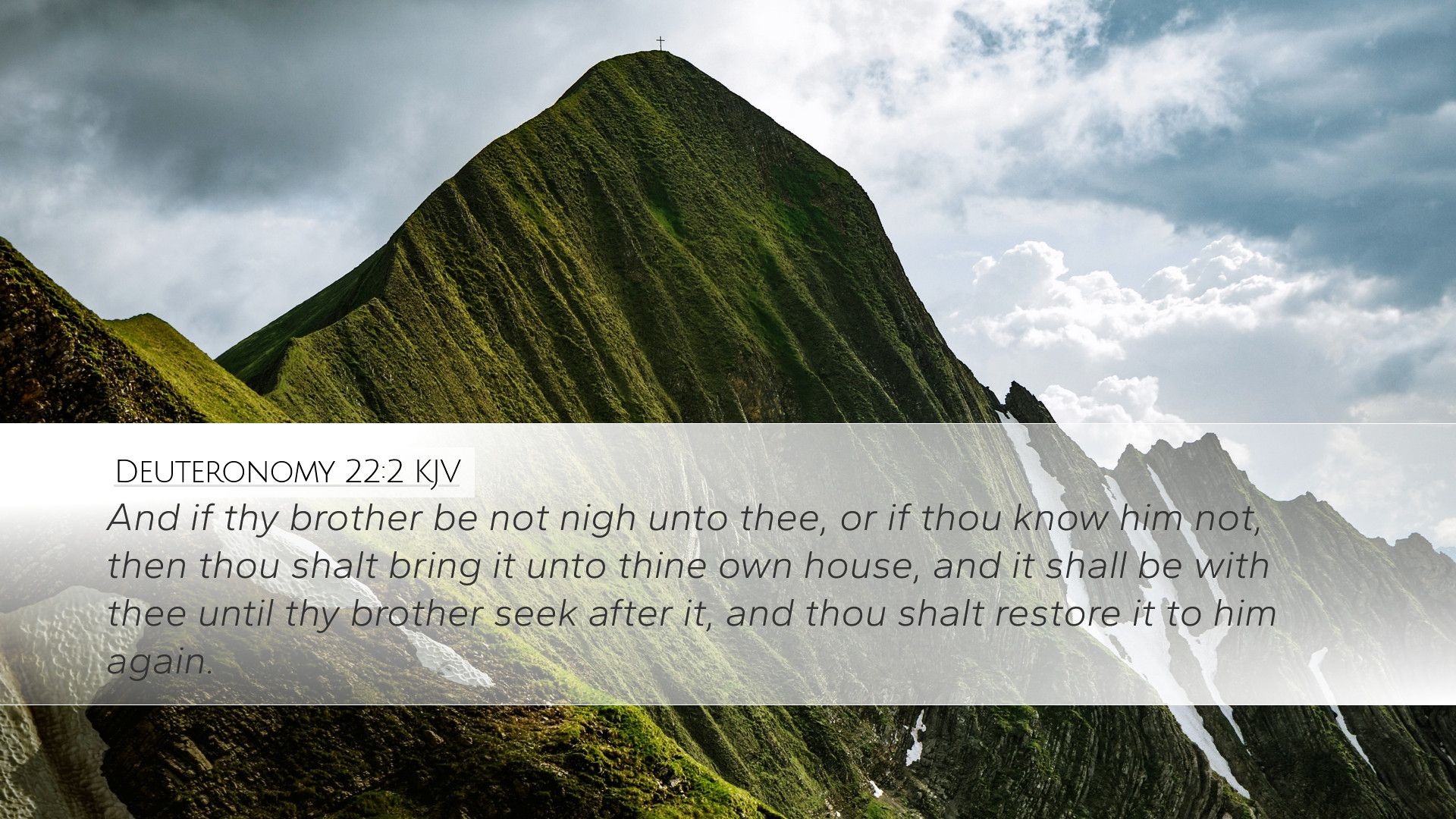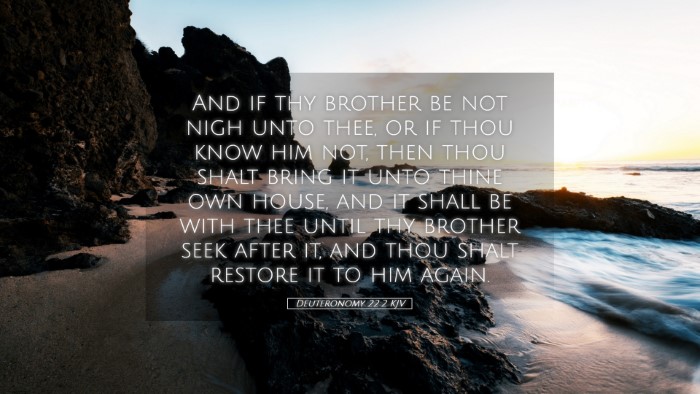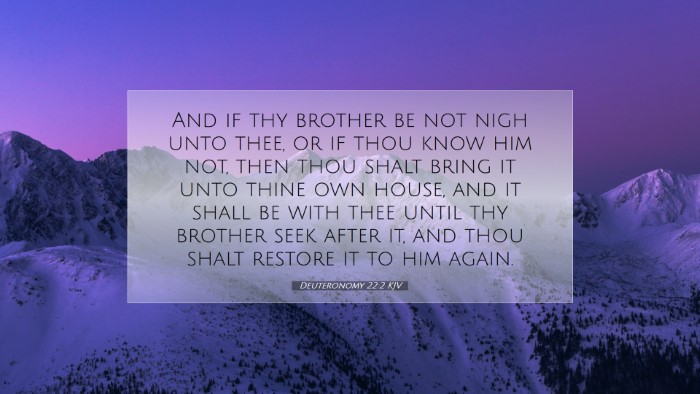Commentary on Deuteronomy 22:2
Bible Verse: "And if your brother is not near you, or if you do not know him, then you shall bring it home to your house, and it shall remain with you until your brother seeks it; then you shall restore it to him." (Deuteronomy 22:2, ESV)
Introduction
This verse is a part of a series of regulations addressed to the Israelites concerning their conduct toward each other, focusing on the themes of responsibility, charity, and community. It strengthens the social fabric of Israelite society by enforcing the sacred duty individuals have towards their neighbors, thereby reflecting the character of God as a God of order and relational integrity.
Contextual Background
The book of Deuteronomy primarily serves as Moses' final address to the Israelites before they enter the Promised Land. Deuteronomy is rich in laws that not only govern the moral and ethical behavior of the community but also emphasize social justice and mercy. The community's strength lies in how they treat each other, and this verse epitomizes that principle.
Thematic Analysis
-
Responsibility Toward Others:
Matthew Henry emphasizes the notion of stewardship in our responsibilities toward our neighbors. The obligation to return lost property illustrates a broader principle of love and care. God desires His people to be actively involved in each other's lives, showcasing the communal aspect of Israelite society.
-
Compassion and Mercy:
Albert Barnes notes that such laws reflect God's intention for His people to demonstrate mercy and compassion. The action of retrieving a lost item and holding it until the rightful owner seeks it shows a deep understanding of human relationships and the care for the well-being of others.
-
Social Harmony:
Adam Clarke adds that this law serves to protect the social order within the community. By establishing rules that prevent loss and promote restitution, the foundation for trust and mutual respect is fortified. Clarke argues that such laws prevent disputes and foster a sense of unity.
Detailed Exegesis
The phrase "if your brother is not near you" may indicate a physical separation, but it implicitly speaks to the relational connection that exists even when distance is present. This encourages a broader interpretation of 'brother'—beyond biological ties to a more communal understanding of Israelite identity.
The obligation to "bring it home to your house" signifies an active choice to ensure the well-being of others, even at a potential personal cost. This act of taking something into one's home reflects a willingness to engage and becomes a practice that can strengthen community ties.
Furthermore, the clause "until your brother seeks it" highlights the respect for personal agency. There is an expectation that the ownership of property brings inherent rights, and the law does not overstep but rather waits for the owner to reclaim their possession, thus maintaining dignity.
Theological Reflections
This verse allows us to reflect on the nature of our relationships within the body of Christ today. Just as the Israelites were called to look out for one another's interests, so are we called as believers to support and care for each other. This theological reflection can become a guiding principle for church communities, emphasizing the importance of accountability and support.
Practical Applications
-
Encouragement of Community Engagement:
This scripture encourages congregations to cultivate a culture of vigilance, where members actively watch over each other's belongings and well-being. It can lead to practical initiatives within the church to set up systems of support for those experiencing loss or hardship.
-
Promotion of Trust:
Just as the law prioritizes the return of lost items, congregations should establish trust through transparency and integrity. This verse serves as a reminder of the trust placed in community members and encourages active participation in preserving that trust.
-
Modeling Christ's Love:
Ultimately, this law mirrors the love and care that Christ exhibited. Believers are called to reflect this love in personal relationships, serving as the hands and feet of Jesus in an often fractured world.
Conclusion
Deuteronomy 22:2 is more than a mere legal stipulation; it underscores fundamental truths about our obligations to one another as members of a community. By analyzing this verse through the insights of notable commentators, we see a rich tapestry of responsibility, compassion, and relational integrity that should inform the way we live out our faith. It reminds us that at the heart of God's law is a call to love our neighbor as ourselves.


